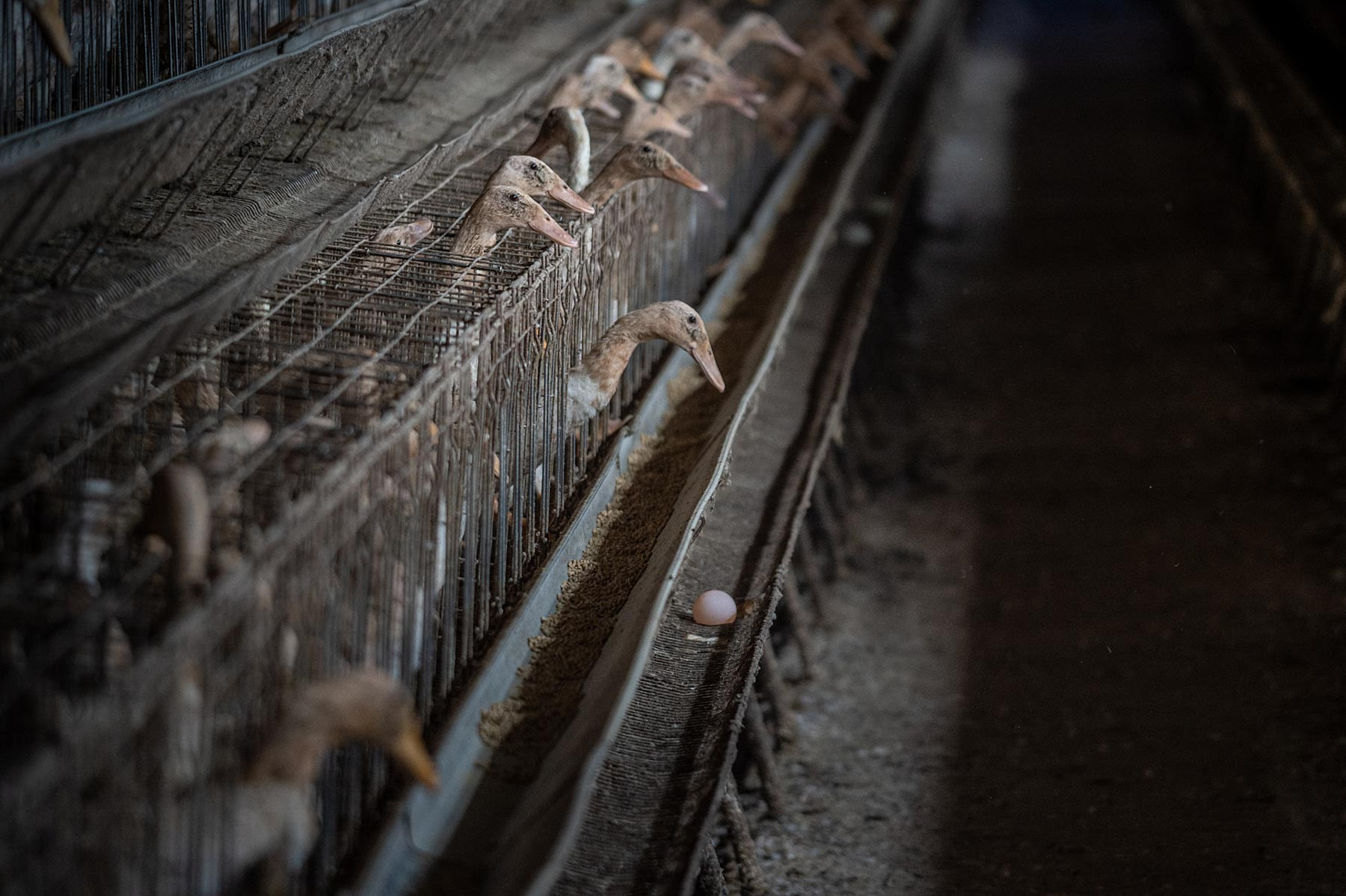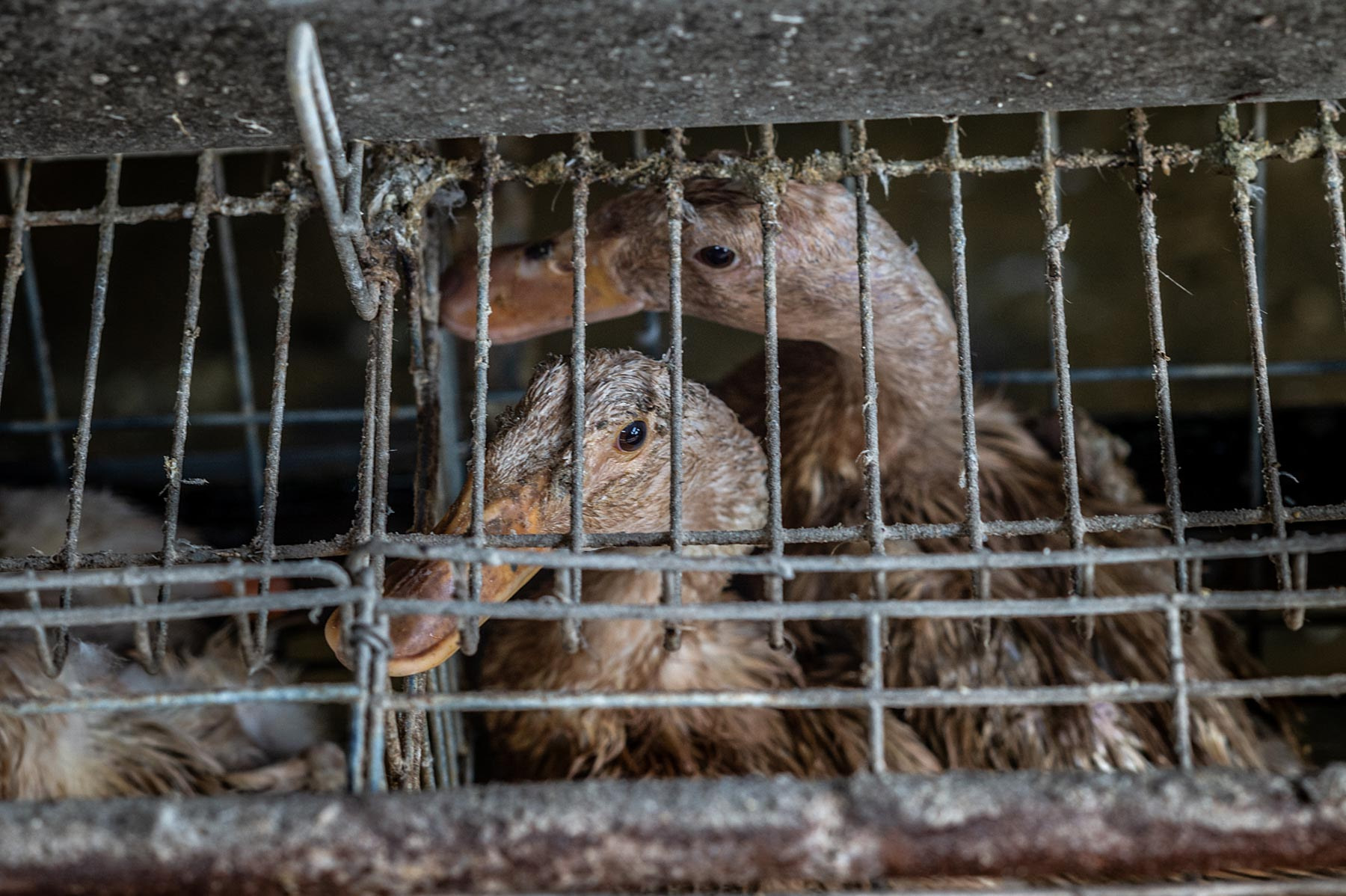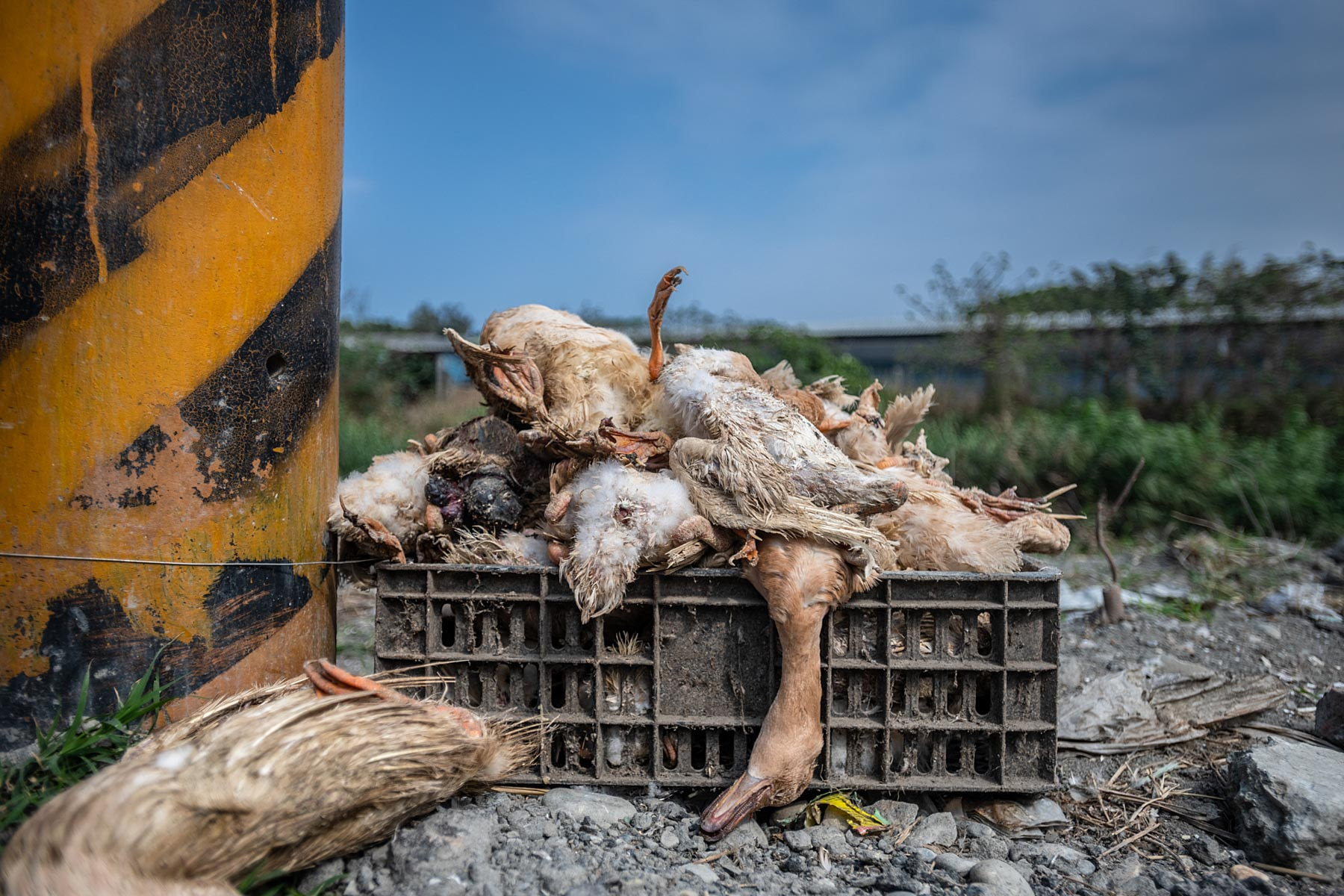Egg-laying ducks are kept two to three per cage without access to bathing water at this industrial farm in Taiwan. Taiwan, 2019.
Jo-Anne McArthur / We Animals
Duck eggs have long been a favorite food in Taiwan. As with other foods, the animals who produce these eggs have not been spared by the global trends of factory farming.
In 2019, We Animals joined the Environment and Animal Society of Taiwan (EAST) to investigate and document animal industries around the country, including one disturbing new agricultural trend: caged duck farms.
Traditionally, ducks that are raised for their eggs in Taiwan have been housed in cage-free systems. Though conditions in these more traditional farms are still undoubtedly confined and unsanitary, the ducks in these systems are able to move about in open pens and are given constant, critical access to swimming and bathing water. Ducks living naturally will spend 80 percent of their time in water. They rely on water for their most basic physiological needs, from grooming themselves and regulating body temperature to cleaning dirt from their eyes.
Two ducks bump into one another inside a battery cage at an industrial egg farm. Taiwan, 2019.
Kelly Guerin / We Animals
Exterior of an industrial egg farm. Taiwan, 2019.
Kelly Guerin / We Animals
But a minority of farmers looking to maximise profit have begun to model their farms after those of egg-laying chickens, and they are now encouraging others to do the same. To the ducks in these farms, their suffering has worsened immeasurably.
Upon visiting one of these farms, the immediate emergency facing ducks became clear.




















Ducks are crammed two to three per cage while their dry feathers and webbed feet crack and bleed against the rusted metal bars. Oxygen feels choked off by the dust and ammonia in the air. Urine and feces fall from cages above onto the animals below, splattering against the concrete floor before flowing into open canals.
Battery caged ducks inside an egg laying farm. Taiwan, 2019.
Kelly Guerin / We Animals
Eggs at battery cage duck egg farm in Taiwan. Taiwan, 2019.
Kelly Guerin / We Animals
Leaving these farms, it was clear why EAST had chosen to pursue this cause specifically. Following our investigation, EAST was able to employ our photos and video in a viral campaign that is calling on authorities and consumers to stop the battery cage trend in its tracks.
Opening the cages is not the end of the story. It will not end factory farms or the suffering of animals within them. But to the tens of thousands of ducks currently trapped with cracked and bleeding feet, unable to even open their wings, it would mean a new life.
To view more images from this story, please visit our Taiwan Ducks collection on the We Animals stock site.




